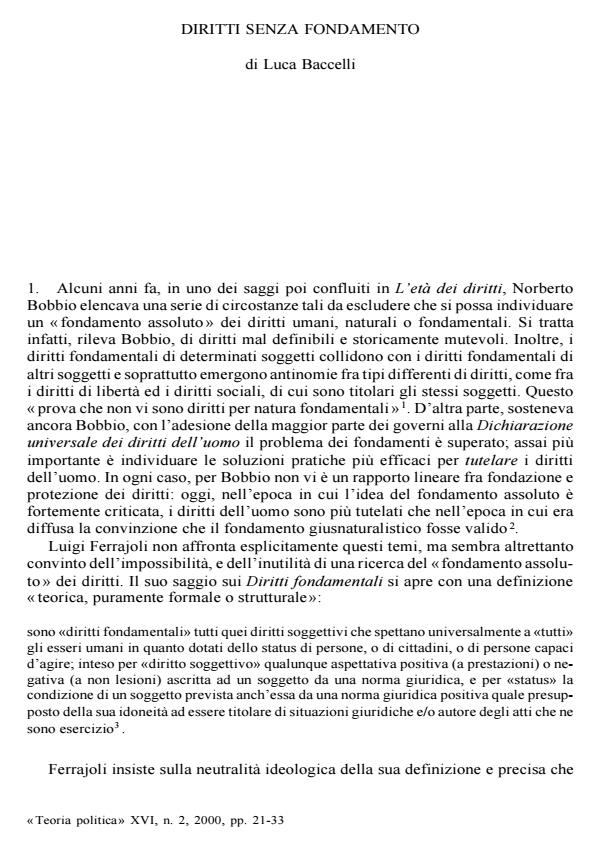Diritti senza fondamento
Titolo Rivista TEORIA POLITICA
Autori/Curatori Luca Baccelli
Anno di pubblicazione 1 Fascicolo 2000/2
Lingua Italiano Numero pagine 13 P. Dimensione file 41 KB
DOI
Il DOI è il codice a barre della proprietà intellettuale: per saperne di più
clicca qui
Qui sotto puoi vedere in anteprima la prima pagina di questo articolo.
Se questo articolo ti interessa, lo puoi acquistare (e scaricare in formato pdf) seguendo le facili indicazioni per acquistare il download credit. Acquista Download Credits per scaricare questo Articolo in formato PDF

FrancoAngeli è membro della Publishers International Linking Association, Inc (PILA), associazione indipendente e non profit per facilitare (attraverso i servizi tecnologici implementati da CrossRef.org) l’accesso degli studiosi ai contenuti digitali nelle pubblicazioni professionali e scientifiche.
Luigi Ferrajoli's argument starts with a strictly formal definition of fundamental rights. This approach seems to imply that the search for an "absolute foundation" of rights is impossible, and not useful. On the other hand, Ferrajoli maintains that his definition "founds" key substantive theses on equality, property, democracy, and citizenship. But in his replies, Ferrajoli admits that the expression "to found" is too strong. A second issue is related to the universality of fundamental rights. In Ferrajoli's theory, such rights are "universal" in that they belong to a universal class of subjects. But their validity is not accepted by the universality of human beings: the language of rights bears the signs of Western legal culture. The translation of that language in other idioms is problematic, and the universalistic approach presents important risks. Ferrajoli's recognition of the links between the language of rights and social and political conflicts should be radicalized. The recognition fits with the active character of rights, as expressions of the activity of claiming, and opens a possible path to inter-cultural dialogue. This recognition alludes also to a "political" conception of citizenship, immune from particularism and not exclusive.
Luca Baccelli, Diritti senza fondamento in "TEORIA POLITICA" 2/2000, pp , DOI: